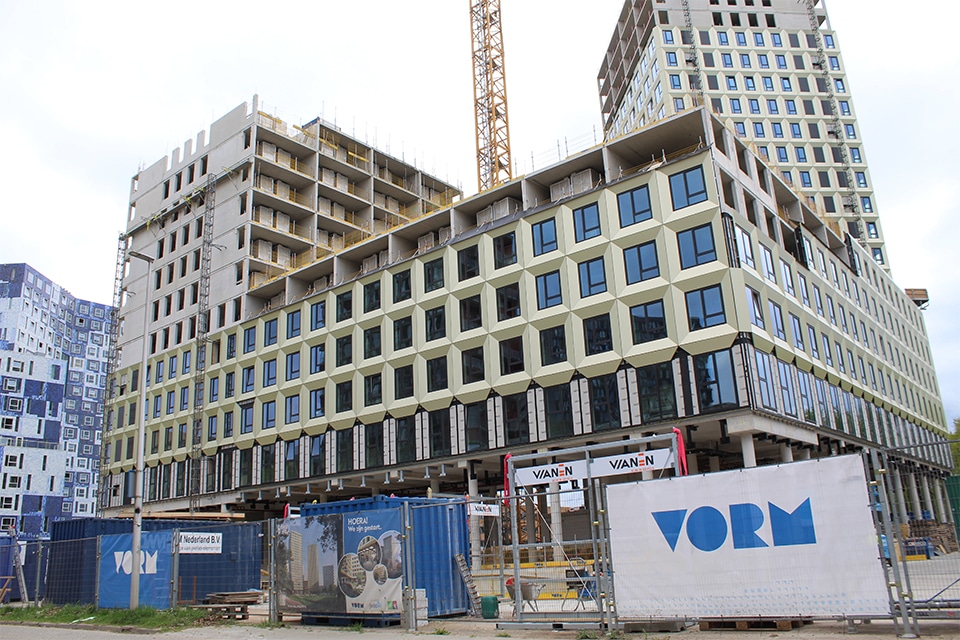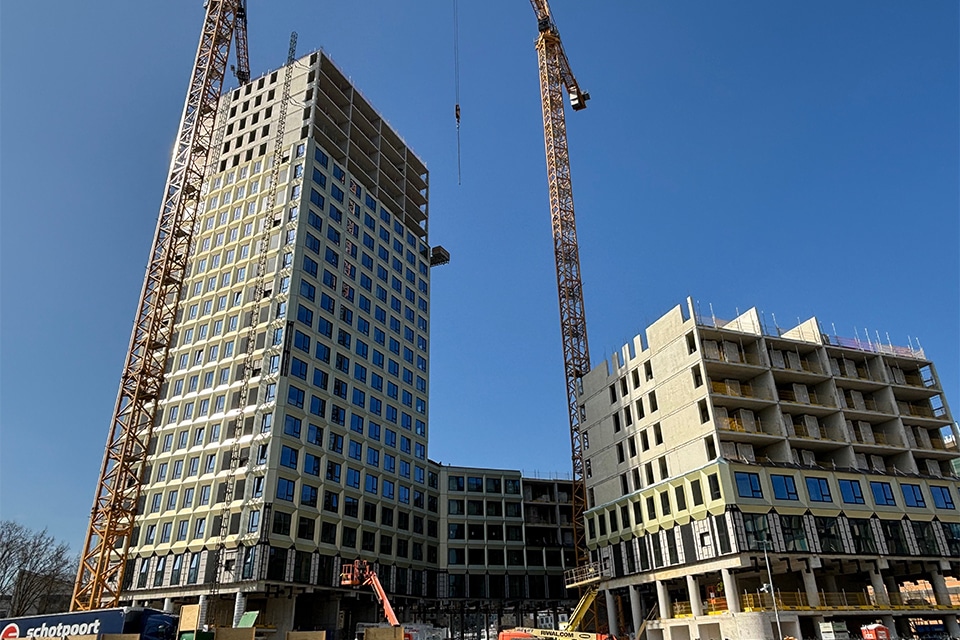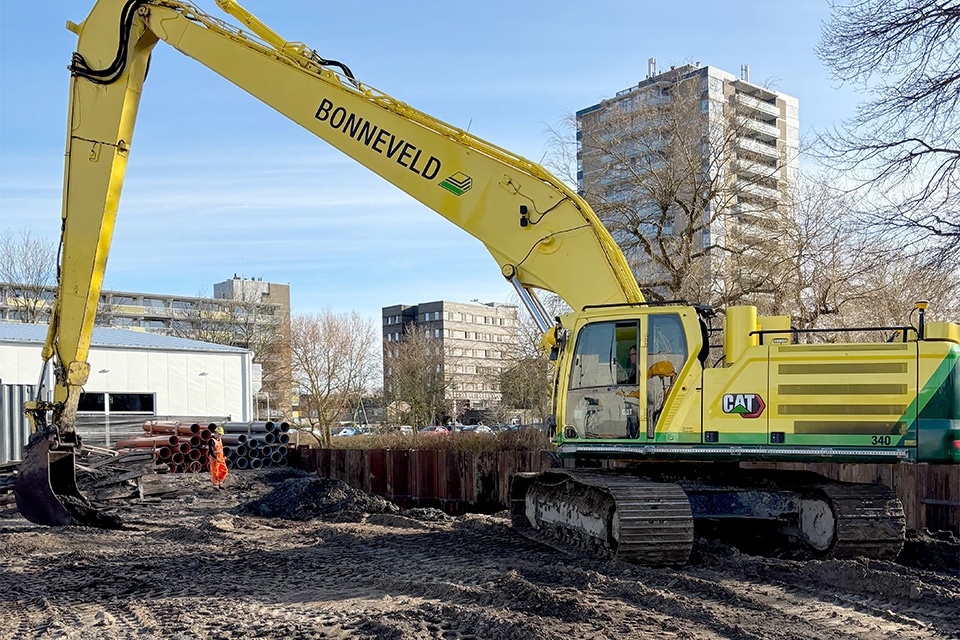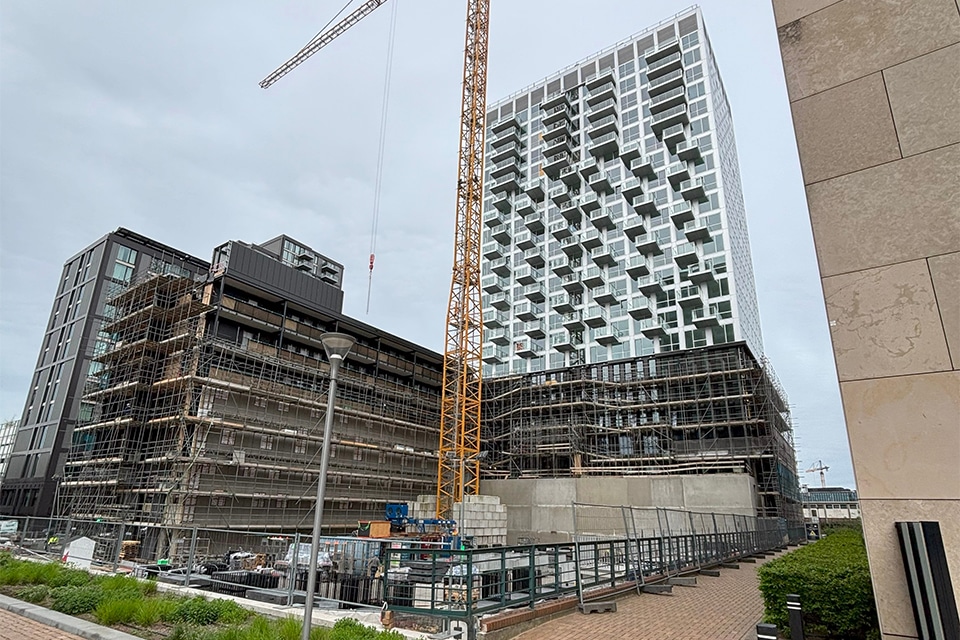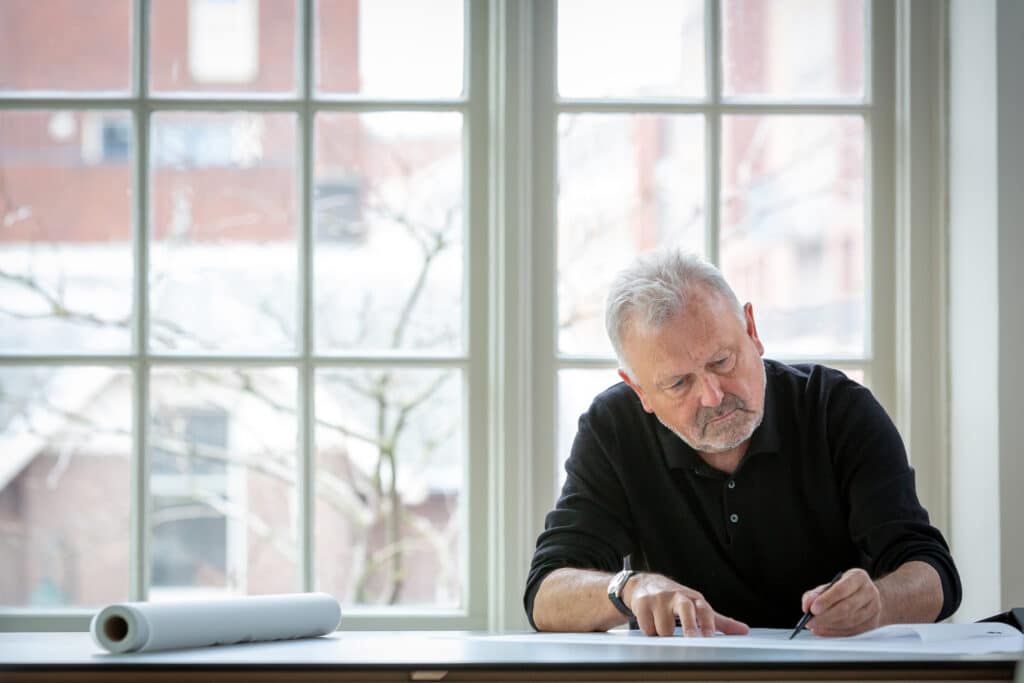
The architect as innovator
Cepezed will exist fifty years in 2024. For the Delft-based architecture firm, spatial and technical innovation has been the starting point since its founding. "We often work in the Netherlands with limited budgets; that makes us creative," says co-founder and partner Jan Pesman (1951). "With our vision, we stood at the cradle of the breakthrough of modular building methods, prefabricated assembly, circularity and user-oriented design."
Cepezed took root at TU Delft; the firm was founded in 1973 by three architecture students, whose first assignment was a design for prefabricated bathrooms. Namesakes Michiel Cohen, Rob Zee and Jan Pesman started an agency during their studies out of dissatisfaction with the building culture of the time. The aspiring designers felt that the contracting industry at the time lacked innovation, Pesman says. "There could be much more 'dry' assembly on the construction site in our view," he says.
'Air and space'
Cepezed's designs "breathe air and space" in their design and layout, minimizing the use of materials and making the buildings flexible. Ingenious handling of architectural resources is still the norm. Over the past half century, cepezed has built up a broad portfolio based on this philosophy and its projects have won the A.J. Van Eyck Prize and National Steel Prize, among others. "We once designed a detached housing law house for 50,000 guilders. You wish you had more budget at your disposal, but I loved working with it. The art is in the limitation."
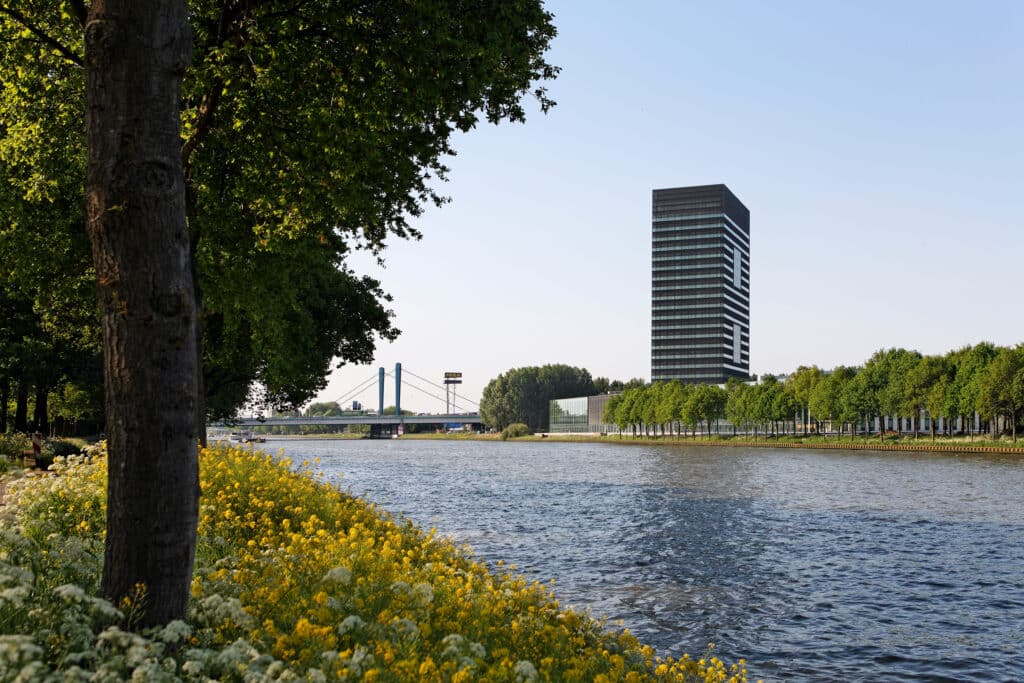
User centric
"I don't envy young architects who want to start for themselves, when you see the demands a design has to meet these days." However, we still enjoy working on challenging utility projects as much as government buildings and Life Science buildings." The user comes first, and tinkering with designs gives lasting satisfaction. "Good wayfinding creates calm in public buildings; daylight provides better orientation. Why should a front desk or OR employee have to work in artificial light?"
Westraven
In this way, cepezed is now working on Rijkskantoorgebouw Westraven, the second redevelopment in twenty years. Anno 2024, another sustainability drive is needed and the nature of office use has changed greatly. "The number of users has grown, but no longer always works on location. Our office for Microsoft at Schiphol Airport, The Outlook, is fully equipped to meet. Furthermore, I am very proud of our contributions to modular construction, including dedicated concepts for courts and theaters that can be reused elsewhere."
Keep innovating
Innovative architecture in the service of use, the signature of a firm that was ahead of its time when it was founded. "The industrialization we co-initiated is still going on, and circular construction is the future. We always innovated, and when that didn't catch on, I did it with our own houses," Pesman says. "First with a house made of steel and sandwich panels - I'm still convinced that that construction method can break through - and recently a villa with self-supporting panels made of pressed Rockwool. Natural resources are becoming increasingly scarce; of the raw material basalt there is plenty on earth. And the house is fully assembled on site."
